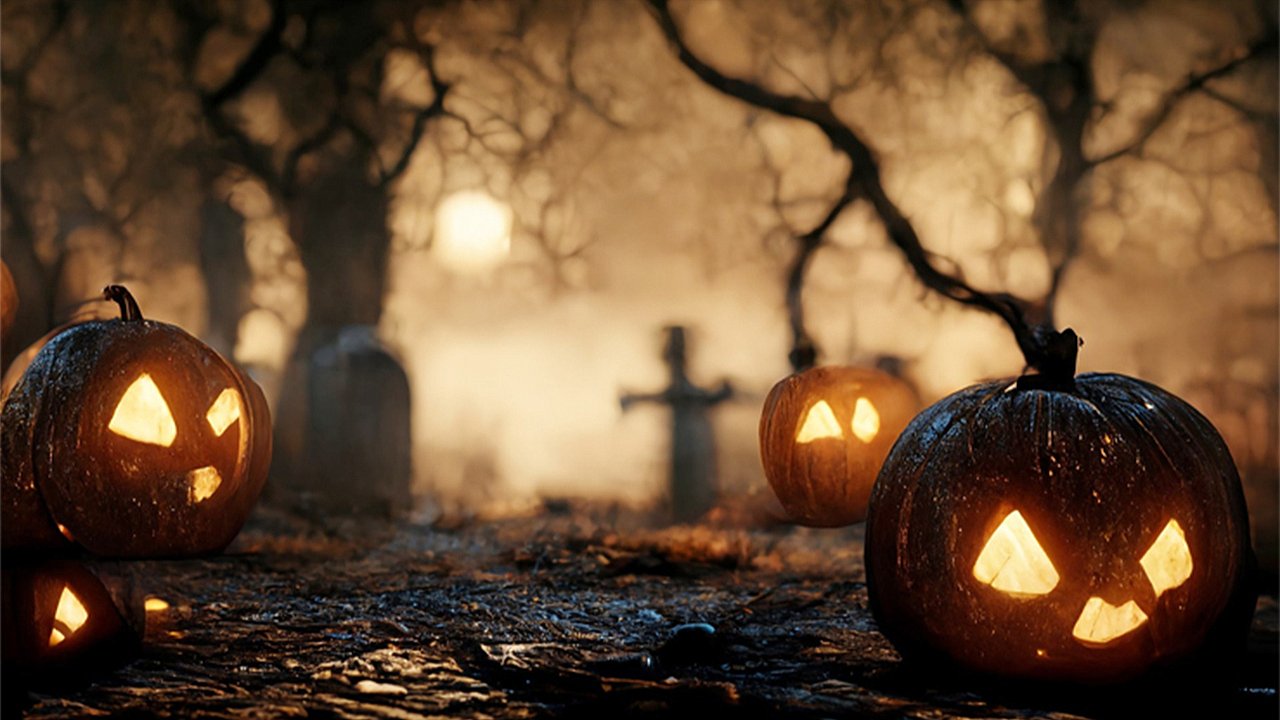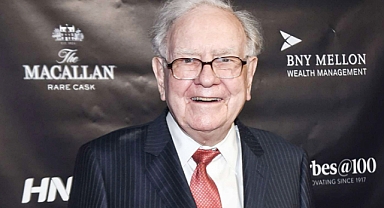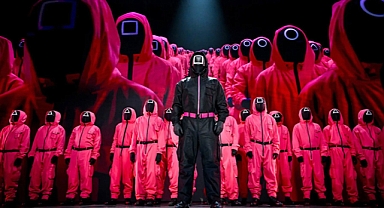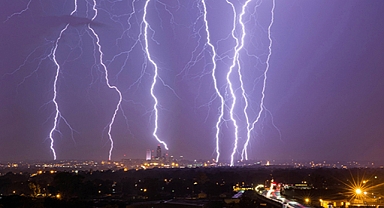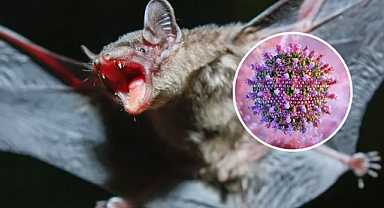When Is Halloween in 2024? Everything You Need to Know About This Year’s Spookiest HolidayThe countdown to Halloween has officially begun, and it’s time to dive into costume ideas, carve pumpkins, and stock up on candy! Whether you’re hosting a ghoulish get-together or preparing for trick-or-treaters, knowing the exact date and day of the week Halloween falls on can help you plan ahead.So, when is Halloween in 2024? Mark your calendar—this year, Halloween lands on Thursday, October 31, 2024.While it’s not quite the weekend celebration many hope for, you can still kick off the festivities early with parties the weekend before and keep the fun rolling through Friday, November 1. And don’t worry—Halloween purists will be pleased to know that October 31 remains the holiday’s official date every year, no matter what day of the week it lands on.Does Halloween Always Fall on the Same Day?
Yes! Halloween is always celebrated on October 31. However, the day of the week changes annually, adding a bit of variety to each year’s celebration. Since 2024 is a leap year, the holiday shifted forward by one day from last year.Looking ahead, 2025 will bring even better news for Halloween enthusiasts: the holiday falls on a Friday—the perfect night for a spooky soirée! The last time Halloween landed on a Friday was in 2014, and after 2025, you won’t see it again until 2031. But there’s no need to worry—Halloween 2026 will be on a Saturday, making for another fantastic celebration.A Look Back: The Origins and Evolution of Halloween
Halloween has evolved over centuries, but it traces its roots back to Samhain (pronounced SAH-win), a Celtic festival celebrated over 2,000 years ago in what is now Ireland, the UK, and parts of northern France. Samhain marked the end of the harvest season and the beginning of the darker, colder months.The Celts believed that on the night of October 31, the boundary between the living and the spirit world blurred, allowing ghosts to return to Earth. To protect themselves from wandering spirits, they lit bonfires, wore costumes, and practiced fortune-telling to predict the future.When the Romans conquered Celtic territories, they incorporated elements of Samhain into their own celebrations, such as the tradition of bobbing for apples. As Christianity spread, these customs blended with religious observances, eventually giving rise to All Hallows' Eve, which later became the Halloween we know today.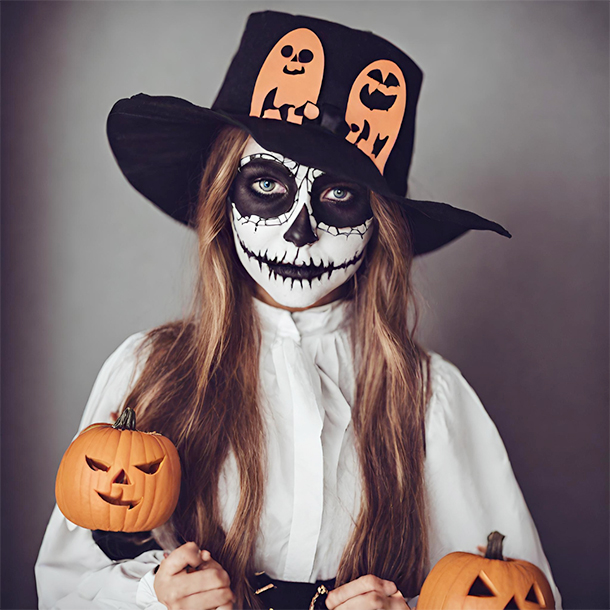 How Halloween Became a Global Celebration
How Halloween Became a Global Celebration
Halloween arrived in the United States during the 1840s, brought over by Irish immigrants fleeing the Potato Famine. Since then, it has transformed into a beloved modern tradition filled with costumes, haunted houses, and sugary treats.Today, Halloween is celebrated across the globe in countries like Ireland, the U.S., England, Mexico, Italy, and Portugal. While the spiritual origins of wearing costumes may have faded, the tradition has evolved into a playful expression of creativity, with costume parties and contests becoming central to the holiday.Halloween’s Economic Impact
Halloween is not only fun—it’s also big business. According to the National Retail Federation, 73 percent of Americans took part in Halloween-related activities last year, spending an estimated $12.2 billion on decorations, costumes, candy, and greeting cards. Whether you’re competing in a costume contest or just enjoying some spooky décor, Halloween is a great excuse to get creative and dive into the season’s playful spirit.Plan Ahead and Make the Most of Halloween 2024
Even though Halloween falls on a Thursday this year, there are plenty of ways to maximize your fun. Plan your costume early, decorate your house with eerie decorations, and make a list of your favorite scary movies for the season. Hosting a pre-Halloween weekend party is a great way to kick off the festivities, and don’t forget to set the mood with a spooky playlist before trick-or-treaters arrive. With October 31 fast approaching, there’s no time to waste! Start planning now, and whether you're carving pumpkins or preparing for a night of frights, you're sure to have a memorable Halloween.
Yes! Halloween is always celebrated on October 31. However, the day of the week changes annually, adding a bit of variety to each year’s celebration. Since 2024 is a leap year, the holiday shifted forward by one day from last year.Looking ahead, 2025 will bring even better news for Halloween enthusiasts: the holiday falls on a Friday—the perfect night for a spooky soirée! The last time Halloween landed on a Friday was in 2014, and after 2025, you won’t see it again until 2031. But there’s no need to worry—Halloween 2026 will be on a Saturday, making for another fantastic celebration.A Look Back: The Origins and Evolution of Halloween
Halloween has evolved over centuries, but it traces its roots back to Samhain (pronounced SAH-win), a Celtic festival celebrated over 2,000 years ago in what is now Ireland, the UK, and parts of northern France. Samhain marked the end of the harvest season and the beginning of the darker, colder months.The Celts believed that on the night of October 31, the boundary between the living and the spirit world blurred, allowing ghosts to return to Earth. To protect themselves from wandering spirits, they lit bonfires, wore costumes, and practiced fortune-telling to predict the future.When the Romans conquered Celtic territories, they incorporated elements of Samhain into their own celebrations, such as the tradition of bobbing for apples. As Christianity spread, these customs blended with religious observances, eventually giving rise to All Hallows' Eve, which later became the Halloween we know today.
 How Halloween Became a Global Celebration
How Halloween Became a Global CelebrationHalloween arrived in the United States during the 1840s, brought over by Irish immigrants fleeing the Potato Famine. Since then, it has transformed into a beloved modern tradition filled with costumes, haunted houses, and sugary treats.Today, Halloween is celebrated across the globe in countries like Ireland, the U.S., England, Mexico, Italy, and Portugal. While the spiritual origins of wearing costumes may have faded, the tradition has evolved into a playful expression of creativity, with costume parties and contests becoming central to the holiday.Halloween’s Economic Impact
Halloween is not only fun—it’s also big business. According to the National Retail Federation, 73 percent of Americans took part in Halloween-related activities last year, spending an estimated $12.2 billion on decorations, costumes, candy, and greeting cards. Whether you’re competing in a costume contest or just enjoying some spooky décor, Halloween is a great excuse to get creative and dive into the season’s playful spirit.Plan Ahead and Make the Most of Halloween 2024
Even though Halloween falls on a Thursday this year, there are plenty of ways to maximize your fun. Plan your costume early, decorate your house with eerie decorations, and make a list of your favorite scary movies for the season. Hosting a pre-Halloween weekend party is a great way to kick off the festivities, and don’t forget to set the mood with a spooky playlist before trick-or-treaters arrive. With October 31 fast approaching, there’s no time to waste! Start planning now, and whether you're carving pumpkins or preparing for a night of frights, you're sure to have a memorable Halloween.
